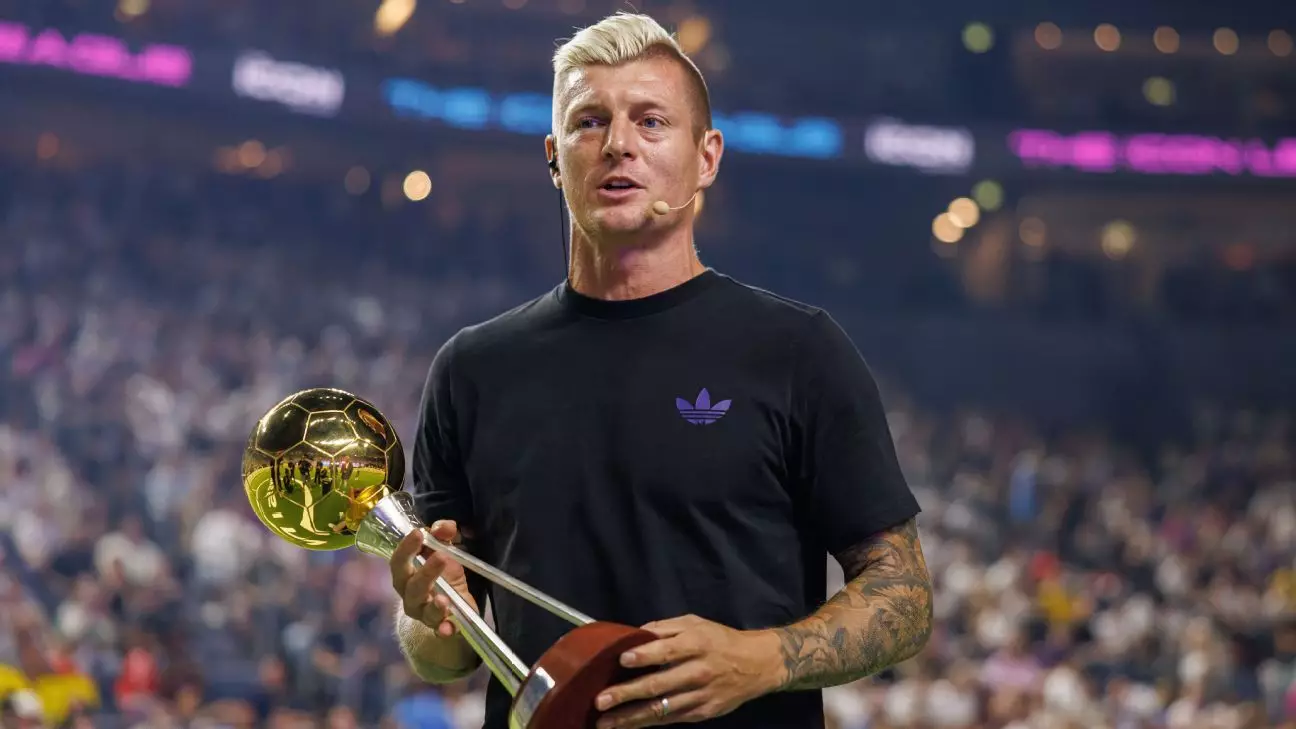Toni Kroos has recently candidly shared his thoughts regarding his retirement from football, particularly in relation to the arrival of star player Kylian Mbappé at Real Madrid. Contrary to what many might expect, Kroos emphasized that his decision to retire wasn’t swayed by the prospect of playing alongside the Frenchman. He revealed that confessing his choice to Carlo Ancelotti, the coach who had been pivotal during his time at the club, was not an easy conversation. The emotional weight of such a decision conveys the significance of his decade-long journey at Madrid, during which he amassed an impressive 23 trophies, including five Champions League titles.
Kroos’s announcement reflects the internal struggle that athletes often face when deciding to transition out of their professional careers. He communicated that his choice stemmed from personal reflection rather than external influences. This is crucial for understanding the emotional landscape athletes navigate. The midfielder recognized Mbappé’s potential to enhance the team dynamic and expressed happiness at his arrival, yet reiterated the importance of making decisions that resonate with one’s personal journey.
The relationship between Kroos and Ancelotti has been one characterized by mutual respect and understanding. Kroos’s determination to convey his retirement decision sensitively is illustrative of their bond. He mentioned that the announcement was difficult not just for him, but also for Ancelotti, who undoubtedly would have preferred to have Kroos continue his tenure. The poignant moment when Kroos decided to break the news underscores the emotional investment both men had in their shared achievements at Real Madrid.
Kroos’s insight into how he managed this moment, opting to choose an appropriate time following a successful La Liga season, showcases his thoughtful nature. It is not just about ending a chapter but also about cherishing the relationships and memories associated with that journey. By ensuring that he honored that shared success before stepping away, Kroos demonstrated a level of professionalism that is rarely highlighted in sports narratives.
With Kroos’s departure, the weight of carrying the No. 8 shirt—a number synonymous with his influence and skill—now rests on Federico Valverde. Kroos expressed his belief in Valverde’s abilities, and in a gesture of encouragement, he formally passed the number to him. This act holds deeper significance than merely changing jersey numbers; it signifies a transition and a torch-passing moment within the squad. Kroos’s faith in Valverde reinforces the importance of mentorship within sports, showcasing how former players can shape and inspire the next generation.
In his reflections, Kroos articulated the responsibility Valverde now carries, emphasizing that the player must step up and embrace the risks inherent to the position. This serves as an acknowledgment of the ongoing cycle of growth in sports where legacy and future potential coexist. Kroos’s foresight in wanting Valverde to inherit his number speaks volumes about the culture of camaraderie and leadership that exists in successful teams.
As Kroos concluded his career, he managed to do so with dignity and grace, having solidified his legacy in the annals of Real Madrid’s storied history. Winning both La Liga and the Champions League during his final season encapsulated the zenith of his illustrious career. His retirement at 34, after the Euro 2024, reflects a strategic timeliness that not many athletes manage to achieve.
Emphasizing that he had thought through his decision deeply, Kroos asserted the significance of following one’s instincts in life’s myriad of choices. The manner in which he has approached retirement—from the heartfelt conversations with Ancelotti to supporting Valverde—illustrates a player who is not only focused on his legacy but is also considerate about the trajectory of the team he leaves behind. Kroos remains a testament to the fact that while an athlete’s career may end, the impact of their leadership and ethos can transcend their playing days, nurturing the fabric of the sport for future stars.
